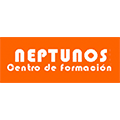Online Degree, Online Courses and Distance Learning in Spain

AFIGE

Animacion, Servicios Educativos y Tiempo Libre

Asociación Alcalá

Asociacion de Enfermeria

AulaactUal. Escuela de Música Moderna On-Line

Bureau Veritas Business School

Centro de Estudios CEAC

Centro de Formación Profesional DECROLY

CEOE Formación, Confederación Española de Organizaciones Empresariales

CESAE, Escuela de Negocios

Curso de inglés My Oxford English

Cursos ESM de Formación Programada a Distancia

EducaciOnline

Escuela de Estudios Universitarios Real Madrid, Universidad Europea de Madrid

Euroaula Online

Formación Técnico Profesional

Formación Universitaria

Innovtur, Consultoría Turística y Formación

Institución Cultural de Enseñanza (ICE)

Instituto Forymat

Instituto Universitario de Educación a Distancia (IUED)

Neptunos Formación

SEAS, Estudios Abiertos (Fundación San Valero)

UDIMA - Universidad a Distancia de Madrid
Online Degree, Online Courses and Distance Learning in Spain by City:
Alcala la RealAlcobendasBarcelonaBurgosMadridMairena AljarafeMalagaOviedoPalma de MallorcaSan Fernando de HenaresSantanderSevilleValenciaVigoVillanublaZaragozaAbout Online Degree, Online Courses and Distance Learning in Spain
Spain is known around the world for moving at its own pace; from the traditional afternoon siesta to the all-night parties of Barcelona, Spanish culture has a rhythm and tempo of its own, and this may be part of what makes online education so popular. The advantage of online education is always that students can set their own pace and work from home, or wherever else they like, as necessary. Given Spain’s reputation as a relaxed and laid-back place, it is not surprising that this appeals to Spanish students.
There are, of course, many disadvantages to studying online, whether in Spain or anywhere else. The biggest problem is that degrees granted online are not generally as respected as those granted by brick-and-mortar institutions. In modern-day Spain, where graduates must compete with other graduates from all over Europe in an open and highly competitive job market, having an online-only degree is often a disadvantage as compared to one from one of the Continent’s many traditional universities. The absence of face-to-face time with professors can also be a disadvantage, since many students find it more difficult to learn when they are not directly interacting with their instructors. The many distractions of home or the coffeeshop or wherever one chooses to work can also be a disadvantage. Still, despite all this, an online degree is in most cases better than no degree at all, as long as the online program is chosen carefully.
The other form of online education in Spain is non-degree courses designed to offer vocational training or other forms of training to those who do not feel the need to get an actual degree. These courses exhibit a wide range of time frames, subjects, and levels of difficulty, but for the most part they take less time to complete than degree-granting programs. The quality of these non-degree programs can vary widely, especially since different subjects are more or less amenable to online instruction than others. Computer programming, for example, can be taught online fairly simply, whereas language skills are very difficult to gain in such a format. This is unfortunate, since language studies are some of the most popular non-degree courses in the world. This should not be taken to mean that all online language courses are a waste of time; only that prospective students who are interested in language study should choose their programs carefully.
While Spain’s online education systems are not particularly notable for any reason – they more or less resemble the overwhelming majority of online education elsewhere in the world – they have a few unique programs that other countries might not offer. There are, for example, online culinary classes in Spain, or online art programs. Most of these will not offer degrees (at least not accredited degrees), but they will still offer high-quality courses that can help to advance a career or just to impart some skills and knowledge that the student might otherwise have lacked.
Throughout the world, several factors are leading to a rapid increase in the popularity of online education. These include massive unemployment among young people, rising tuition at colleges and universities, and ever mounting demand for highly trained and educated employees in the global labor market. Spain is no exception to this global trend. As in other modern economies in Western Europe, the winds of economic change have blown more and more students toward online degrees rather than more traditional on-campus degrees.
Whether it is in Spain or anywhere else, the greatest advantage of online education is that it enables students to set their own schedule and work at their own pace. This is a tremendous relief for working adults and those with young families, as the obligations of adult life do not always leave room for regular course work and studying. Thus, many adults all over the world are taking advantage of the opportunity presented by online education. While the schedule of an online degree is not entirely up for grabs–due dates and project deadlines are as strict as they are in more traditional universities–the specific time and place where the work gets done is up to the student. If transportation is a problem, coursework can easily be done at home or at the local public library. In Spain, which is known throughout the world for moving to its own tempo, the advantages of self-scheduling are particularly widely appreciated.
Although online education is an excellent option for many students, it is not perfect. The biggest challenge facing those who choose this path is the fact that some employers find online degrees to be less reputable than more traditional ones. These perceptions are beginning to change as online degrees become more and more common, but it can still present a problem for graduates who did not study at a bricks-and-mortar institution.
The perception that online degrees are of a lower quality than traditional degrees is not entirely unfounded. Part of the reason why some employers see things this way is because there are numerous online “institutions” that print out degrees without providing high-quality instruction. Known as “diploma mills,” these websites often post absurdly low tuition rates and do not require their students to turn in final projects or complete proctored exams. As a general rule, remember that if it looks too good to be true, it probably is. It goes without saying that it is crucial to avoid diploma mills, since they are not only a waste of money and time, but can also make the student appear gullible or even dishonest.
That said, the majority of online education programs in Spain are perfectly reputable and provide a high-quality instruction for all of their students. While the risk of scams and diploma mills is real, it does not detract from the quality of legitimate online-only institutions. Prospective students who exercise a little common sense in their search can avoid all potential pitfalls and reap the rewards of an online degree. This is as true in Spain as it is anywhere else, as Spain’s online degree programs are not known to be significantly different in any way from those elsewhere in Europe.

